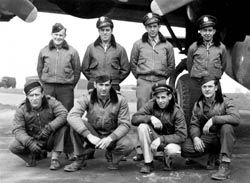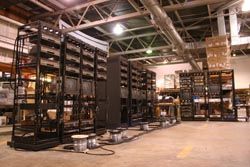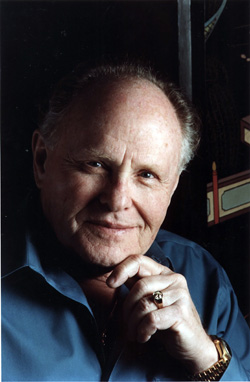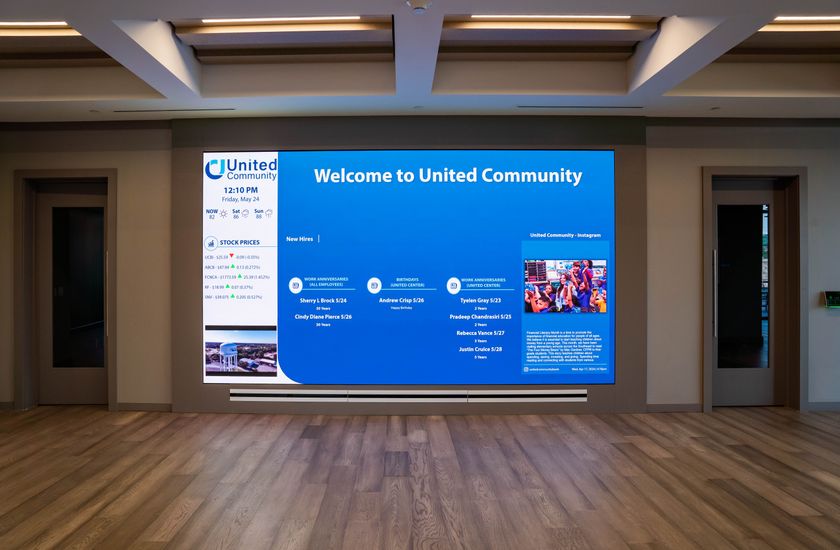NAME: Mackey Barron
COMPANY: HB Communications
TITLE: President and Founder
OVERTIME: Barron's primary vision, to provide audiovisual technology solutions to educational and corporate organizations, has successfully survived the last half-century of technological advancements. Under his guidance, HB has grown to be the fifth largest AV company of its kind.
SCN: You've said in past interviews that your interest in this industry was sparked by some fundamental things you learned about AV presentation systems while you served in the Air Force during World War II. First, audiovisual tools are useful in training and education. Second, your spy missions flying as a Second Lieutenant taught you the importance of distributing information. Third, you lifted the spirits of the 10,000 soldiers at the POW camp where you were imprisoned until the end of the war by projecting movies, sometimes eight times in a row, to a packed 1,200-person audience. Coming from those experiences, what inspired you to found a company called "HB Motion Picture Service" with Don Hawthorne in 1946?
Mackey Barron: In high school I helped to run the movie projectors for the educational movies. When I entered the military, I saw how quickly and efficiently these technologies could be used for training the troops. These experiences helped me to realize the power that AV technology could have in educating and entertaining people. I felt like this was an industry that had real growth potential. In 1946 AV technology was mostly comprised of 16mm, filmstrip, opaque, and overhead projectors. So it was obvious that my partner, Don Hawthorne (the H) and I, Mackey Barron (the B) would start a company, HB Motion Picture Service.

A lieutenant colonel and WWII Air Force pilot, Mackey Barron returned home to establish HB Motion Picture Service in 1946.
MB: That prediction came true. The AV industry had seen exponential growth in those years with the evolution of "unified" communications and IP-based technologies. This industry evolved from mechanically engineered analog equipment back in the 1940s to all microprocessor based digital technology that we are all presently familiar with. In the next five years there will be even more change to meet the needs of the industry. People can now communicate in real time across the globe. The only constant in this industry is change; AV companies need to evolve with technology.SCN: Many have observed your astounding work ethic over the years, watching you put in 90-hour work weeks to grow your company into one of the top five AV systems integration companies in the nation. How did your observations of changes in technology translate into the evolution of your business?

HB Communications' present-day Tech Center, where its systems are pre-built and tested, has grown quite a bit since the company's humble origins on Barron's porch.
MB: If a manufacturer's sales representative wanted a meeting with me, he or she needed to be in my office at 5:00 a.m! The good news for them was that I was available seven days a week, and I usually didn't lock up until late in the evening.
As far as the evolution of change, we always believed in being early adopters of new technology. We rode the wave of progress and changed our name accordingly from HB Motion Picture Service, to HB Educational Systems, and finally to HB Communications.
SCN: Both your personal endeavors and those of HB Communications have had a tremendous impact on industry training through organizations such as InfoComm. As the AV technology becomes increasingly complex, what role will education have?
MB: Education is a critical component of any well-run business and HB is in the business of helping customers deliver their message. HB has over 90 employees with CTS certification and that list grows each month. We all recognize the necessity of keeping up to date with technological advancements, and we typically have specialists that are responsible for the varied segments of our business. HB is fortunate to have individuals, based on their longevity in the industry, who have been asked to help document "AV best practices" which are used by many companies for internal training purposes.
SCN: How would you complete the following sentences?
What we can't even imagine today... actually it is our ability to imagine what the future holds for us that helps us evolve as a company and profit from that foresight. There is going to be more specialization in our industry as advancements require diverse and larger skill sets.
Our modern concept of time... is what it has always been-real time. That said, our customers' expectations relative to timelines means we have aggressive expectations. The younger generations grew up with a totally different perspective of immediate gratification through communication. This is enhanced by the internet and the availability of PDAs as well as the ability to text or to be "online" all the time. Our customers expect information immediately!










